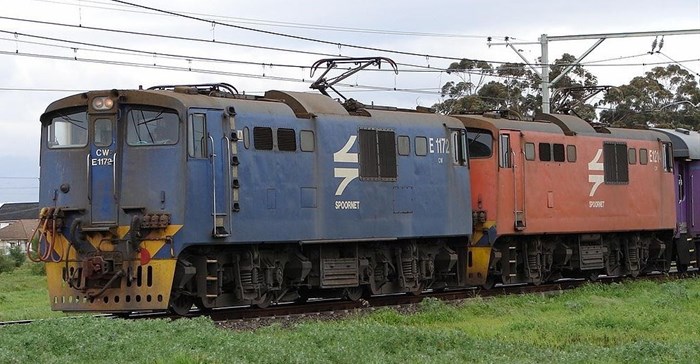The Passenger Rail Agency of SA (Prasa) says infrastructure for its new trains procured in a huge R51bn deal, will be ready six months after the trains begin testing next month.
One of the biggest procurement deals in the country
The first of the 600 trains arrived in November, without a depot to house it or a test track being ready. The new Gibela trains have been bought from French transport and power company Alstom and are intended to modernise Prasa's urban service, Metrorail. The transaction is one of the biggest procurement deals in the country, second only to the proposed nuclear procurement programme and larger than the controversial arms deal.
This is separate from Prasa's R3.5bn contract, inflated to more than R4.8bn due to inadequate hedging, for locomotives from Spanish manufacturer Vossloh Espana through black economic empowerment partner, Swifambo Rail Leasing. These locomotives are intended for the long-distance service, Shosholoza Meyl.
In November, Prasa applied to the High Court in Johannesburg to review and set aside the contract with Swifambo to supply the 70 Spanish locomotives due to findings of "alleged fraud, corruption and gross irregularities" made by the auditor-general and the public protector. Prasa spokesman Victor Dlamini said the agency was waiting for a date to be set for the court proceedings to begin.
Crucial infrastructure not ready
Business Day reported last year that as of May last year, Prasa was a year behind in getting crucial infrastructure ready for the new Gibela trains.
The technology on the trains requires existing infrastructure to be upgraded and new structures to be built. This includes finalisation of a R5bn depot modernisation programme for the upgrade and construction of five depots, a R200m test track, platforms, bridges and other structures.
An internal report tabled before former Prasa CEO Lucky Montana last year showed that the Braamfontein depot, which had been earmarked as the priority depot in which the new trains would be tested, was only 8% complete in May. Wolmerton in Pretoria was then designated as the depot for testing, but the facility was only 4% complete in May, despite Prasa's plans to have it completed by August.
At the time, the agency was concerned that "reputable contractors" would be reluctant to commit themselves to the "tight construction deadline".
Dlamini said the test track was on schedule to be completed by the end of this month. Prasa had roped in Grindrod Rail Consulting and Mota-Engil Construction for the modernisation of the test facilities at Wolmerton. Prasa had prepared a staging yard in Wolmerton, where the trains were to be housed while awaiting testing, he said. However, Braamfontein was still the priority depot. The tender for its upgrading had been issued with the agency now awaiting bids, Dlamini said.
Change in business model needed
Transport economist Andrew Marsay said it was important for Prasa to get the new trains in operation as the existing fleet was old. However, Prasa's biggest problem was changing its "public sector operating model", which resulted in the agency having "no incentive" to grow the business and its market, Marsay said.
One attempt by the Department of Transport for an improved business model was a feasibility study to dissolve the nearly R500m subsidy for passenger trains paid to the eThekwini Municipality, "to see if local oversight could result in better service", he said.
Source: Business Day










































